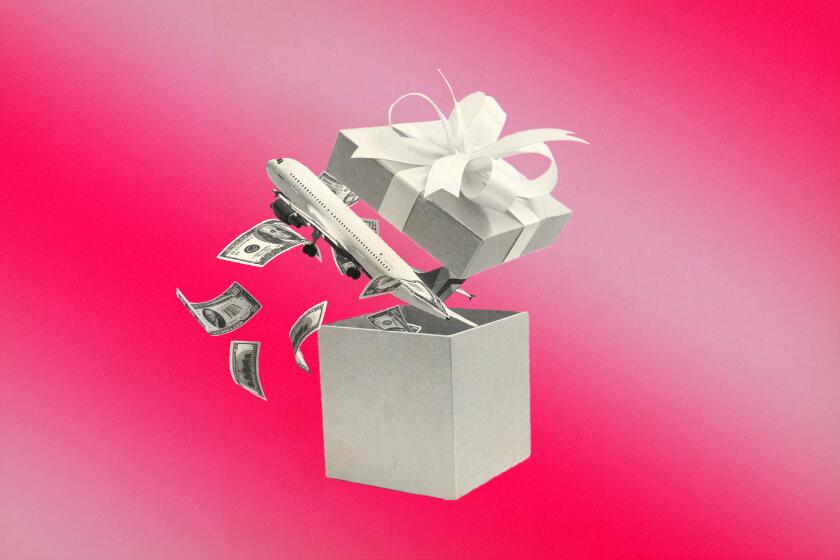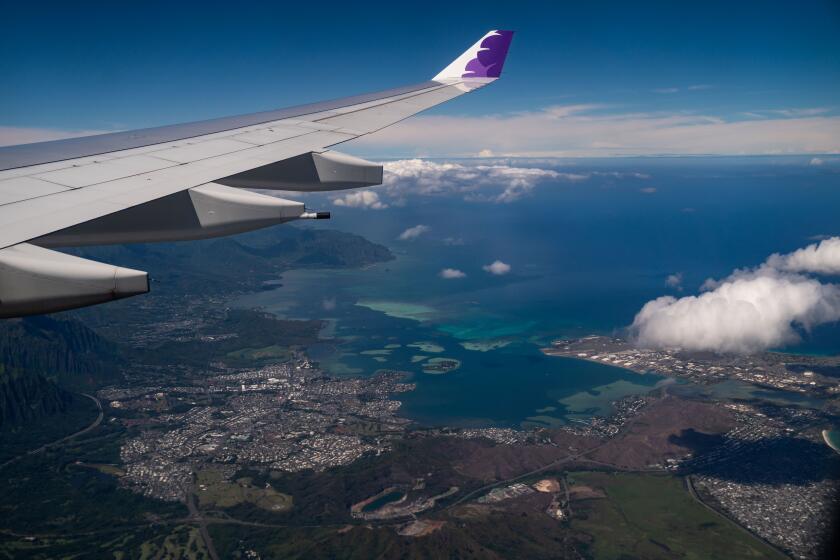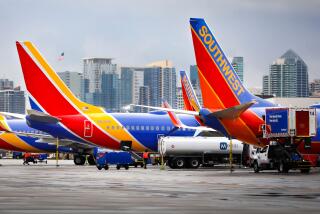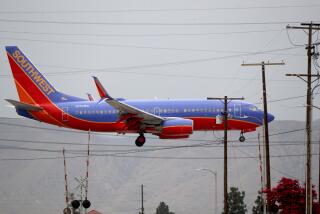Blocked middle seats are on their way out. These airlines are still in the game
When the COVID-19 pandemic hit, some airlines blocked selling middle seats to allow passengers to social distance while flying. Now, one of those airlines is rolling back the policy. Southwest Airlines will start filling planes Dec. 1, before the Christmas and New Year’s travel period.
In an explanatory eight-part Twitter thread, Southwest said the “decision was not made lightly” to unblock middle seats. The airline pointed to scientific sources in changing its policy. For example, it cited an International Air Transport Assn. report that said just 44 cases of COVID-19 transmission — out of almost 1.2 billion passengers who have traveled since the beginning of 2020 — were linked to flying.
Delta Air Lines, however, went the other way. “We’re extending one of our key health and safety protocols this winter holiday season by blocking the selection of middle seats and limiting the number of customers per flight through at least Jan. 6, 2021,” an airlines news release said.
For the 10% of you who said coronavirus would have no impact on your travel plans, available airfares are the feast before the feast.
Delta’s policy works like this: If you’re traveling solo or with one other person, the middle seat will remain unsold. If three or more people are traveling together, they’ll be able to book the middle seat.
Hawaiian Airlines, which announced last week that it would resume nonstop daily flights from Long Beach to Honolulu starting Dec. 16, will continue to block middle seats through Dec. 15. Alaska Airlines promised to block middle seats (except when large families need them) and limit the number of passengers onboard its planes through Jan. 6.
JetBlue said it would “sell less than 70% of seats” on any flight through the holiday season.
The novel coronavirus that causes COVID-19 is spread in droplets when people talk, cough, sneeze, etc., and in smaller aerosol particles that may travel farther. The droplets may infect you by reaching your mouth or nose. For this reason, major air carriers require passengers to wear masks during flights.
The 14-day quarantines are over for those who can show a fresh negative COVID-19 test.
According to the “Risk of COVID-19 During Air Travel,” published Oct. 1 by the Journal of the American Medicine Assn., the risk of contracting COVID-19 on an airplane is low. It gave high marks to on-board air quality (a mix of fresh air from outside and air recycled through HEPA filters) and noted that passengers have little face-to-face contact.
The report advises passengers to not travel if they feel ill, always wear a mask while on a plane and wash or sanitize their hands frequently. “If there is an overhead air nozzle, adjust it to point straight at your head and keep it on full,” the report said. “Stay seated if possible, and follow crew instructions.”
Californians remain under stay-at-home rules, which urge people to avoid unnecessary travel and to gather outdoors in groups no larger than three households.
More to Read
Sign up for The Wild
We’ll help you find the best places to hike, bike and run, as well as the perfect silent spots for meditation and yoga.
You may occasionally receive promotional content from the Los Angeles Times.









